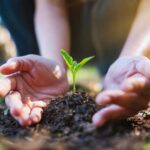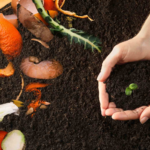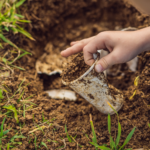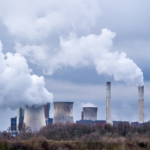
Commonly people cannot think of how must waste they are producing every day. In every household every day, at least a small bucket of the garbage is produced; likewise, there are trillions of families who are producing waste of equal amount. Have you ever thought where did this waste go? We all know there are substantial dumping grounds in every city, but those dumping grounds also process the garbage and maintain balance. About 2.6 trillion trash is produced all over the world, and managing garbage is a huge task. The municipal corporation can manage the bulk waste with the help of Waste Converters Machines and can makes localities free from the garbage.
You may think why this much investment has to be done for waste management. Several problems can occur if the waste management is not done correctly.
Problems occur from garbage
Water pollution
It is a common habit of every human being or even the industries to throw out trash in the water. Most of the industrial waste are dumped in water bodies. Even water pollution also occurs from water that you deposit on the beaches and that move to river water and oceanic water. Garbage plays a vital role in water pollution, and this has to be immediately taken care of; otherwise, the marine world will get destroyed because of the human-made waste.
Air pollution
If a good amount of garbage is accumulated at one place automatically, it will cause bad odor because of the presence of waste material, and this also promotes the cause of many diseases in the people staying nearby. Various types of waste produce different unhealthy gases, which is one of the main reasons for air pollution. Garbage play an essential role in air pollution. Even people burn out garbage, which also caused air pollution.
Soil pollution
Previously, the primary measure to reduce garbage and not cause air or water pollution was to dump the waste material under the soil. But because of the lack of research or knowledge, people use to dump all waste material under the ground, and some of them were not biodegradable or products which are not dissolved by soil and its enzymes. This is how these materials cause soil pollution. Now the system of dumping waste under the earth is also not permitted because of space issues. Landfilling is now banned, and that also increases the chances of pollution-causing garbage.
From waste soil, water and air get polluted, and these are all national elements of nature, which also transfer the polluted elements in the environment, and that causes diseases in human beings. To save life and human being, it is essential to waste management properly. The municipal corporations have taken prolific measures for bulk waste management, and that is how now nature can be saved.
To save nature from the waste-related problems, there are several measures which are taken by the municipal corporation. Still, before that, it is essential to know about the different types of waste only then the proper waste management measures can be applied. Here are five significant kinds of garbage that is produced every day.
Liquid waste
This kind of garbage are both household waste and industrial waste. Household waste like wash water, used detergent, dirty water from the toilet, urine, etc. Industrial waste like organic liquids, liquid chemical waste, etc. Even rainwater is also considered as liquid waste until it is harvested because, after all, rain, water gets polluted by accumulating with the local dust and debris and become a liquid waste which is vast in an amount in case of the rainy season. Wastewater also came from local water bodies like ponds where animals are cleaned, and clothes are washed.
Solid waste
Solid waste are of different categories. The most problematic solid waste is plastic waste. The typical plastic wastes are plastic bags, containers, jars bottles, and other colossal waste, which are thrown as trash after extensive reuse like broken chairs, tub, bucket, and many more. Another major part of solid waste that are produced every day are paper or card waste. Commonly packaging materials, newspapers, paper bags, cardboards, food containers come under this category. If you talk about solid waste, which are hard, that includes all solid metal water like cam, canister, and another scrap.
Ceramics and glasses also belong to this list. Every day, a massive amount of soft and hard drinks bottles is disposed of. Now and then, ceramic plates or any other ceramic materials are disposed of. All these come under the solid waste category.You can also make the best use of organic waste converters machines to transform these liquid wastes into useful products.
Organic waste These are the water that is not that harmful to nature because these are degradable waste. In this category, you can include household waste like garden waste, manure, rotten meat, which are natural products and can be easily turned into compost or any other biodegradable material is known as organic waste. These wastes are composted with organic waste composting machines and made reusable for the plants.
Recyclable waste Waste, which can be recycled and used as raw material to make new products, are known as recyclable waste. In this category, industrial dry waste, organic waste, other solid waste like glass, ceramic is also included. Recyclable waste is not harmful to nature because this waste can be recycled and reused, which reduces trash from the final list.
Hazardous waste This category of waste includes all reactive waste or toxic water. It can be a chemical waste, or it can be anything else which are flammable and reactive. Because this waste causes danger to the environment and creates more problems, this is why it is called Hazardous waste.
To separate these types of waste nowadays, the municipal corporation has taken measures like putting a different kind of a waste to the different dustbin. This helps the process to segregate waste and reuse the products which can be reusable. Even the municipal corporation is using a waste generator which functions to segregate waste of different category. It separated organic waste, solid waste, rubbish, and many more types of garbage. This is how the process of waste management is made more accessible.
Necessary measures can be taken for bulk waste management
When it comes to managing waste, which are producing every day in quantity, then you cannot rely on small waste management measures and protect nature. There is some waste management process which are scientifically proven to be beneficial for the environment is taken by the municipal corporation
Preventing waste generation preventing waste generation or waste minimization is the process where people are motivated not to produce much waste by not using unnecessary elements often. Using metal straw rather than disposable straw reduces some amount of everyday waste. Methods like this are a progressive step toward waste minimization.
Recycling Recycling is the best way to reduce the amount of waste at a high rate. Elements that are recyclable and can be used to produce components in the future helps nature by creating less waste. The bulk waste management by municipal corporations focuses on waste recycling more because most of the non-biodegradable materials can be recycled, which reduced the production of harmful waste elements.
Incineration Incineration is the process where the waste material is converted to its original mother material. This process is also known as combustion. If the products can be used to make the raw materials, then the same material can be used to manufacture the products again. This is how the amount of produced waste can be reduced. This process generated heat, which can also be converted to energy.
Composting Composting is done with organic waste, which are biodegradable. This waste is in reaction with microbes can be converted to manure, which is food for growing plants. From this manure, organic fertilizers can be made. This is how waste can be turned into food to grow plants. For this process, organic waste converter machines are used.
Sanitary landfill Water which are toxic and cannot be recycled or composted is dumbed in landfill which process is known as a sanitary landfill. This process is harmful to soil, but several microorganisms can reduce the toxicity or reactivity of the elements and does not cause pollution. This is how waste is dumped under the ground and moved away from human interaction.
Waste energy recovery During combustion or any other recycling process, heat and energy is generated, which can be recovered and used to produce electricity and other energy compounds that are useful for a human being. Recovery of energy helps to reduce the amount of energy waste and also reviews the investment of production of electricity because the resources are approaching to be used.
Benefits of bulk waste management
- It saves the environment from getting polluted from waste.
- Recycling waste material helps to reduce the cost of raw materials.
- Water management reduces all kind of waste either by recycling or by hearing it up.
- Burning waste produces energy, which helps generate electricity at a lower cost.
Waste is a big problem for the entire world, but it can be reduced with prooer measures, which are discussed above.




